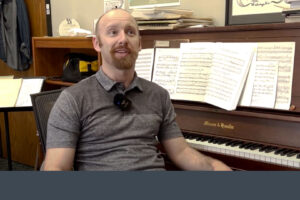

Research by Tanya Clement, assistant professor in the School of Information, The University of Texas at Austin
Supercomputing isn’t only for the hard sciences. Researchers in the social sciences, digital humanities and arts are using Stampede to enable new discoveries, too.
Hundreds of thousands of hours of important spoken text audio files dating back to the 19th century are only marginally accessible for listening and almost completely inaccessible for new forms of analysis and instruction in the digital age. These files, which comprise poetry readings, interviews of folk musicians, artisans and storytellers, and stories by elders from tribal communities, often contain the only recordings of significant literary figures and bygone oral traditions.
In 2013, the School of Information at The University of Texas at Austin and the Illinois Informatics Institute at the University of Illinois at Urbana-Champaign will host two High Performance Sound Technologies for Access and Scholarship (HiPSTAS) workshops to explore how new technologies and methods can open up unique avenues of inquiry into these documents.
Texas Unleashes Stampede
Stampede will provide high performance computing, large-scale visualization and massive storage capabilities to sound archivists to help them search for patterns and gain insights into spoken language and music. Several large sound archives will be available to the researchers on Stampede, including recordings of Ojibwe elders discussing traditional knowledge, speeches by Lyndon Baines Johnson and Lady Bird Johnson, and an oral history of the oil boom in Texas. Stampede enables researchers to analyze massive sound archives at unprecedented speeds, increasing the pace of new discoveries.



